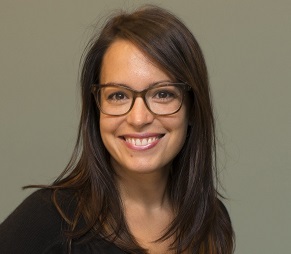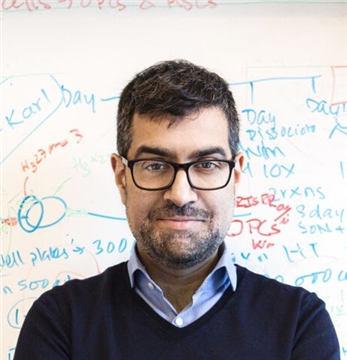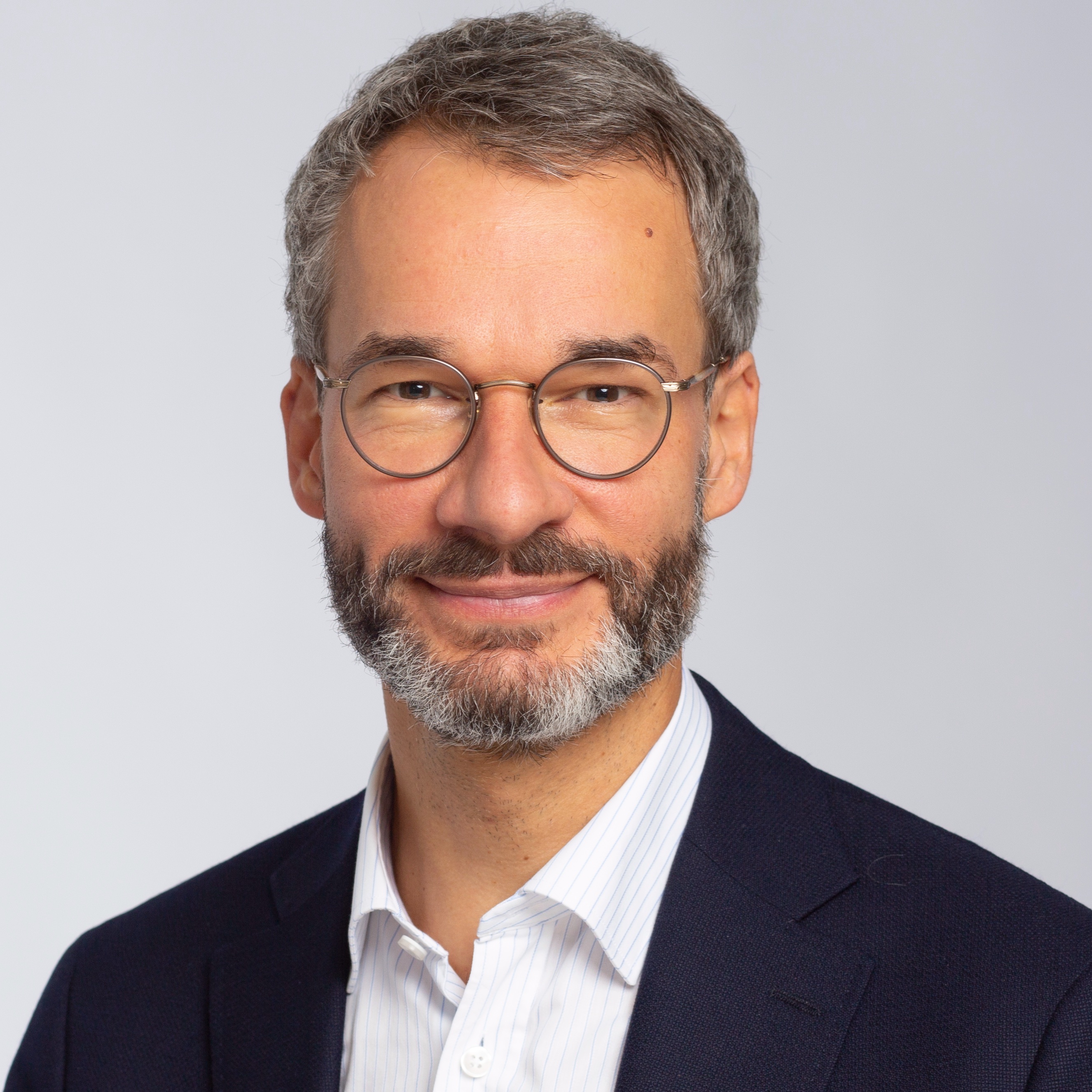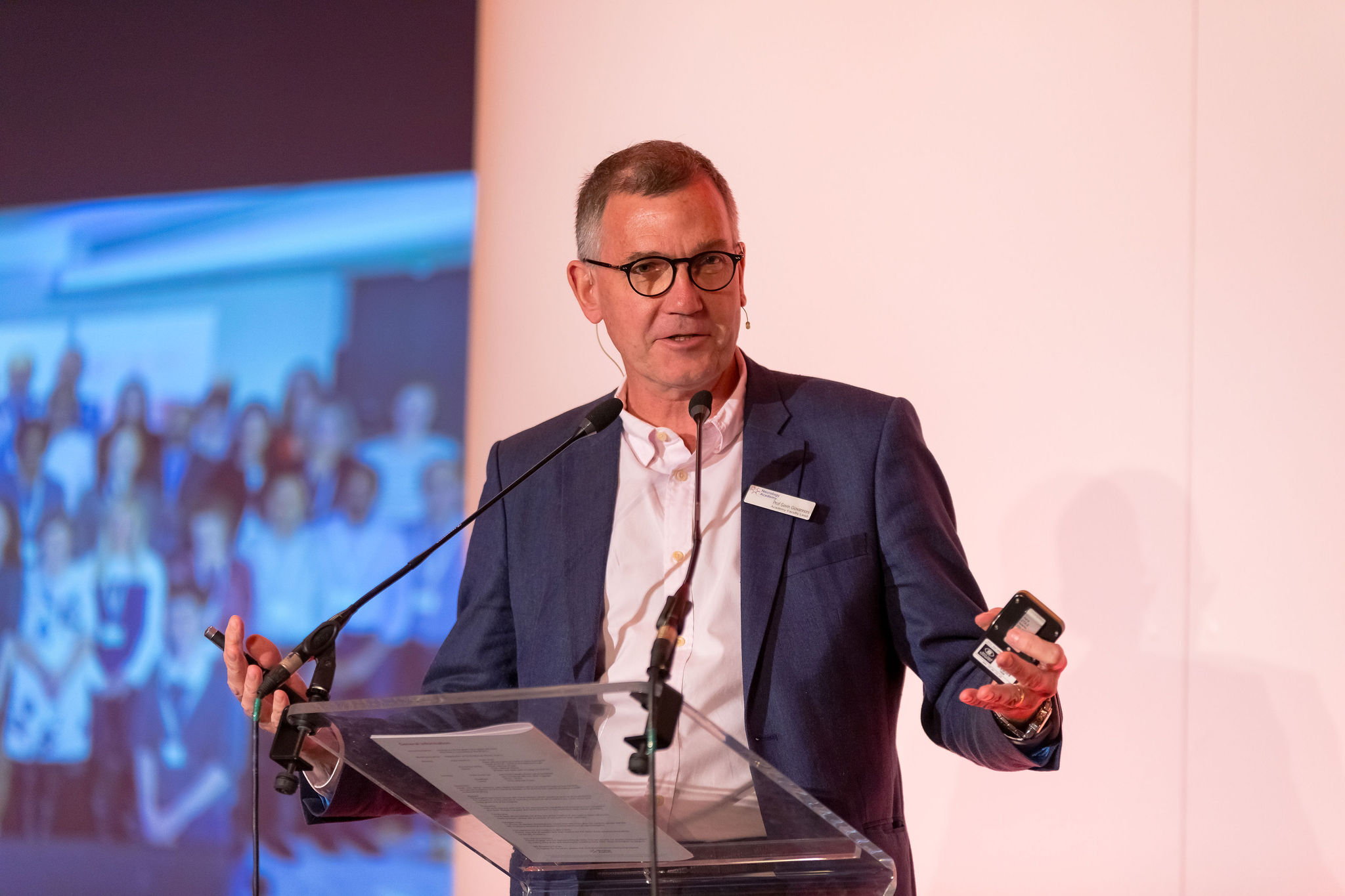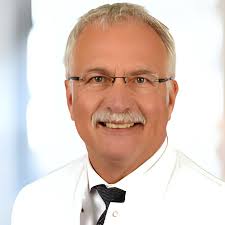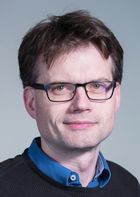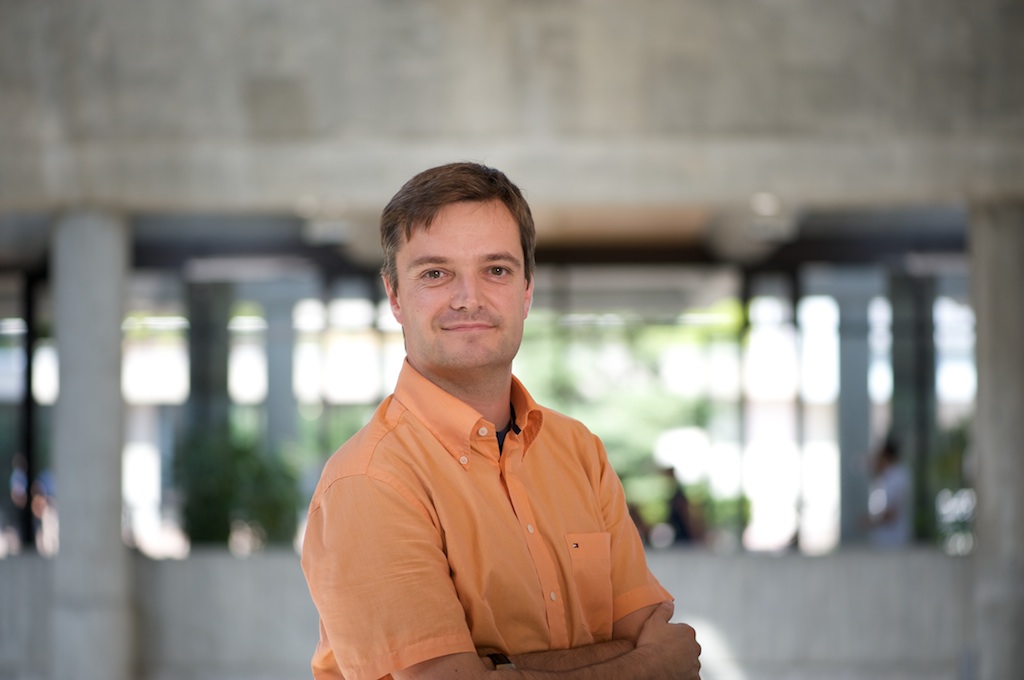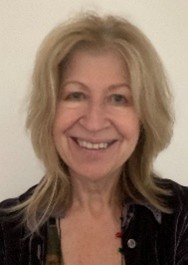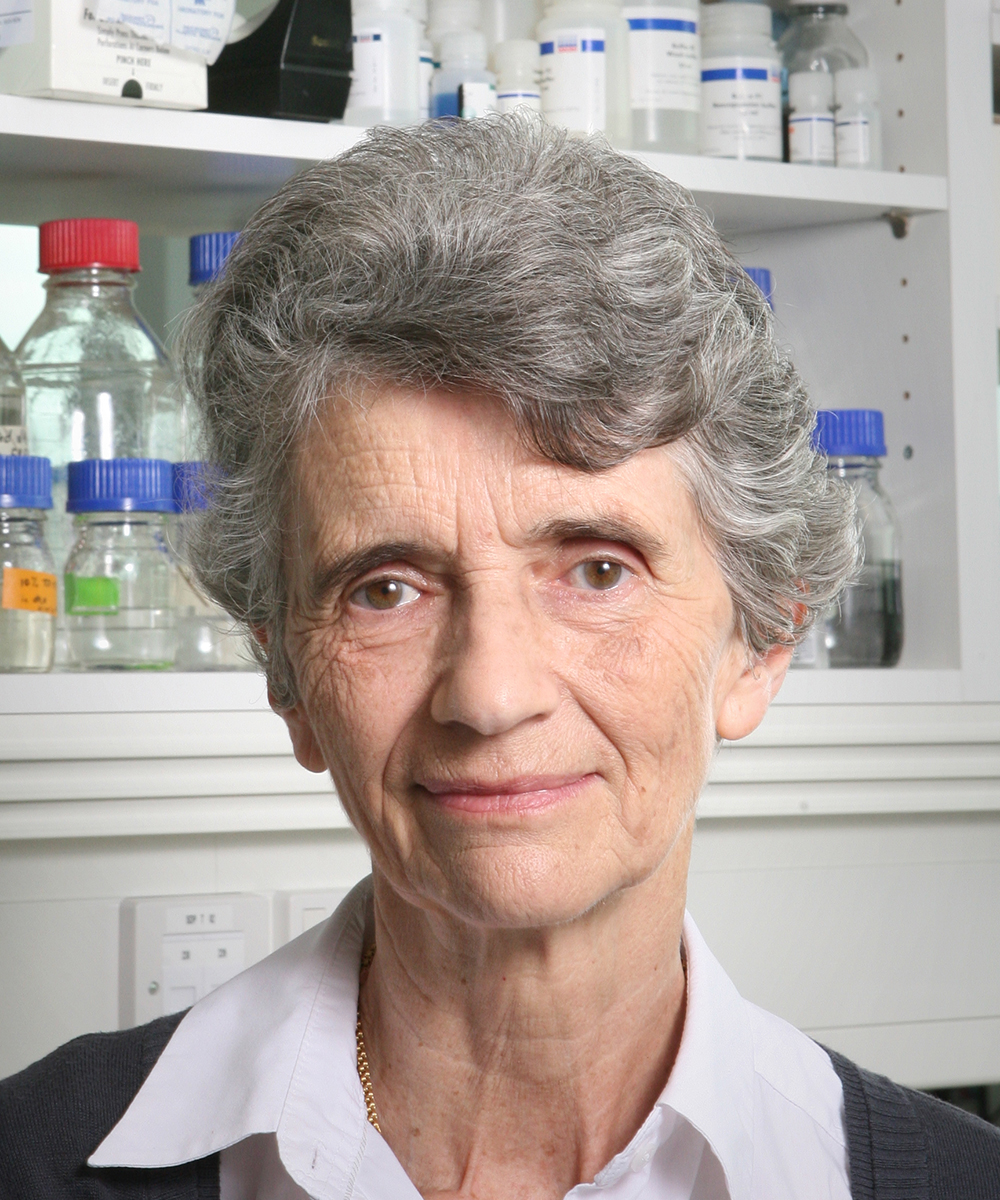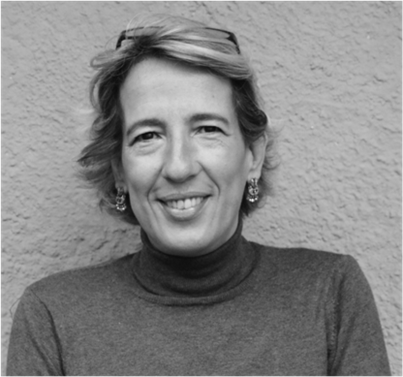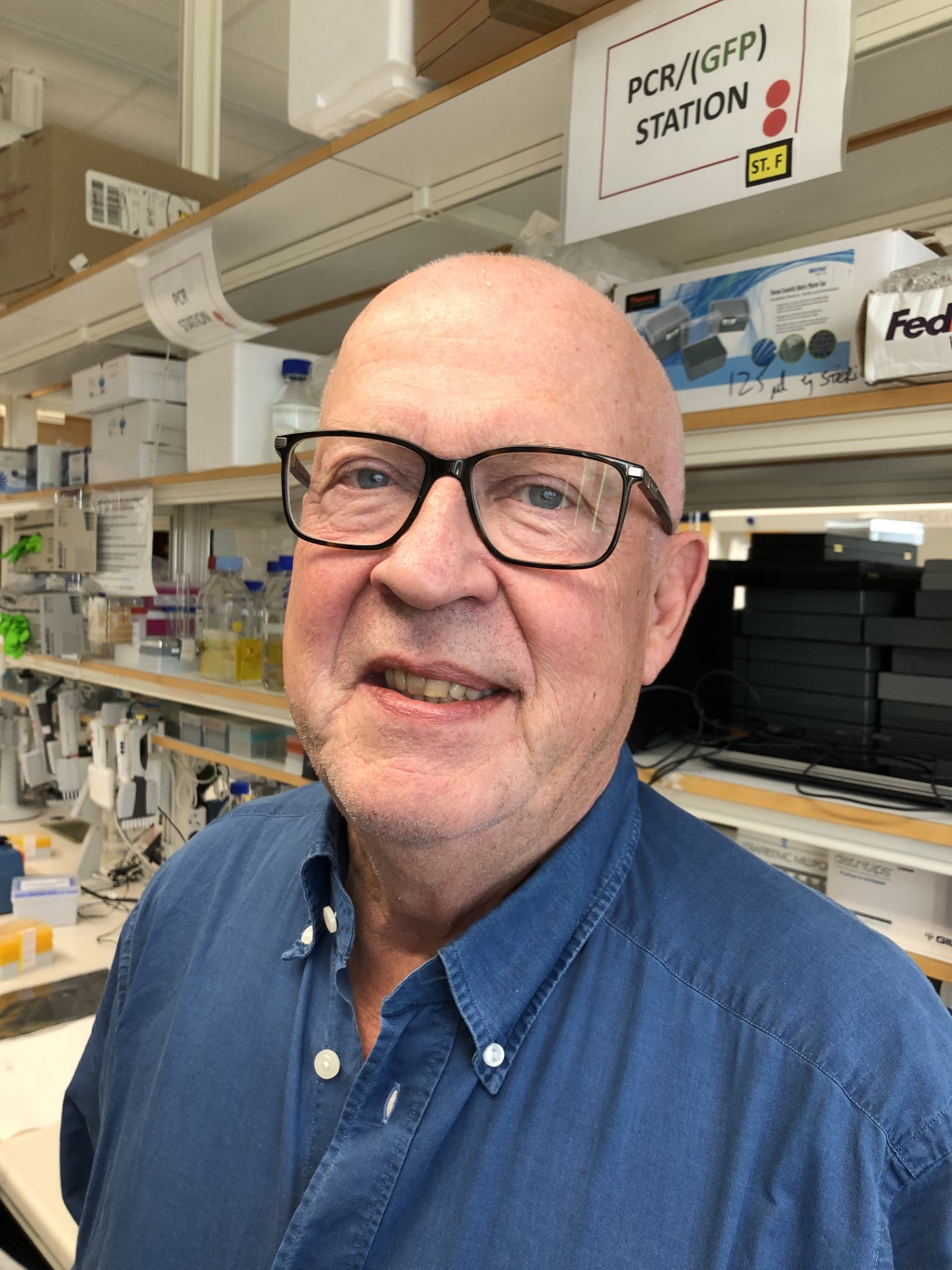Oxford Neuroinflammation Conference 2026
Clinical-scientific meeting with a focus on recent advances in the field of neuroinflammation, with a particular emphasis on multiple sclerosis (MS) and neuromyelitis optica spectrum disorder (NMOSD). Speakers will discuss a wide range of topics, covering both basic science and clinical aspects of these diseases. Hosted by Professor Lars Fugger and Dr Kate Attfield, University of Oxford

Date and Venue
Dates: 13th-14th April 2026
Venue: Saïd Business School, Oxford
Register here:
https://www.oxforduniversitystores.co.uk/short-courses/nuffield-department-of-clinical-neurosciences/nuffield-department-of-clinical-neurosciences/oxford-neuroinflammation-conference-2026
Registration includes
- Talks on both days
- Morning and afternoon tea/coffee and snacks
- Lunch on both days
- Evening drinks reception on Monday 13th April
POSTERS
IF YOU WOULD LIKE TO SUBMIT A POSTER TO PRESENT AT THE CONFERENCE PLEASE EMAIL KATE ATTFIELD (KATE.ATTFIELD@NDCN.OX.AC.UK)
Accommodation
In collaboration with Venues of Excellence, please use the following link for accommodation options for conference attendees. This site has been specifically selected with discounted rates and based on proximity to the conference venue, however, if it does not include accommodation that is suitable for your needs, please feel free to contact Subita Balaram (subita.balaramkuttikkatte@ndcn.ox.ac.uk).
https://voe.vbookings.co.uk/b/neuroinflammation26/
Please note: this information is provided for convenience and does not imply endorsement by us, NDCN or the University of Oxford.
Programme
Monday 13th April 2026
8.30 – 9.15 Arrival, registration (coffee and pastries)
9.15 – 9.20 Welcome
Session 1 The immune system: Friend and Foe
Session Chair Cheri Sirois, Cell press
9.20 - 10.00 The Cost of a Comprehensive Immune Defence
John Trowsdale, University of Cambridge
10.00 – 10.30 Infectious disease challenges over time, the rise of zoonoses, and the impact on health today
Astrid Iversen, University of Oxford
10.30 – 11.00 Coffee
Session 2 The immune system: Mistaken Identity
Session chair Cheri Sirois, Cell press
11.00 – 11.40 How a human tumor virus might cause autoimmunity
Christian Münz, University of Zürich
11.40-12.20 Molecular mimicry in Multiple Sclerosis
Ingrid Kockum, Karolinska Institute
12.20 – 13.00 TBD
13.00 – 13.50 Lunch
Session 3 Understanding disease risk
Session Chair Liam Messin, Nature Medicine
13.50 – 14.20 Determinants of outcome in MS
Stephen Sawcer, University of Cambridge
14.20 – 15.00 Genome-wide Analysis of AQP4+NMOSD: Insights into Comorbidities and Future Therapeutic Approaches
Kate Attfield, University of Oxford
15.00 – 15.30 Coffee and Cake
Session 4 The immune system in the brain
Session Chair Giovanna Borsellino, University of Rome
15.30 – 16.10 Compartmentalized regulation of CNS autoimmunity
Thomas Korn, Technical University of Munich
16.10 - 16.50 Evolution of the MOG-specific B cell response: maturation in the periphery and suppression in the CNS
Anneli Peters, LMU Munich
16.50 – 17.30 Tissue-resident memory T cells in CNS Autoimmunity
Roland Liblau, University of Toulouse
17.30-18.30 – Drinks reception
Tuesday 14th April 2026
8.30 – 9.15 Arrival, registration and coffee and pastries
Session 5 CNS resident cells
Session Chair Angela Vincent, University of Oxford
9.20 - 10.00 The myeloid side of the brain
Marco Prinz,
10.00 – 10.30 Transitions of oligodendroglia to disease-associated states in MS: Insights from single-cell and spatial omics
Gonçalo Castelo-Branco, Karolinska Institute
10.30 – 11.00 Coffee
Session 6 Neurodegeneration
11.00 – 11.40 Mechanisms of neurodegeneration in multiple sclerosis
Manuel Friese
11.40-12.20 The fate of oligodendrocytes in MS lesions
Tanja Kuhlmann,
12.20 – 13.00 Probing and perturbing immune responses in the CNS
Martin Kerschensteiner,
13.00 – 13.50 Lunch
Session 7 Treating and preventing CNS diseases
Session Chair Tomas Olsson, Karolinska Institute
13.50 – 14.20 Pragmatic ways to prevent MS - lessons from streptococcal-related autoimmunity
Gavin Giovannoni, Queen Mary University of London
14.20 – 15.00 CAR CD19 treatment in most severe Neuroimmunological Disorders
Ralf Gold, University of Bochum
15.00 – 15.30 Coffee and Cake
Session 8 Treating and preventing CNS diseases (continued…)
15.30 – 16.10 Treating CNS inflammatory diseases: not one for all
Jacqueline Palace, University of Oxford
16.10 – 16.30 Concluding remarks
16.30 End of Meeting
Speakers
Professor Galit Alter
Galit Alter received her PhD in experimental medicine from McGill University, and is currently an Associate Professor in Medicine at Harvard Medical School. Over the past 8 years her research has focused on understanding the role of the innate immune response to chronic viral infections, including HIV and HCV, with a focus on defining the role of Natural Killer (NK) cells in antiviral control.
Recently, these studies have shifted gears to begin to define the mechanism by which these innate immune effector cells may be harnessed through vaccination to gain more effective control over viral replication. To do this, her current research interests lie in defining the role of innate immune recruiting antibodies in providing protection from infection. Specifically, she is working towards defining the pathways that result in the targeted production of “protective” antibody glycans to enhance the production of antibodies that can potently block infections. Advancement in understanding how to manipulate the antibody glycan in a targeted manner through vaccination will also lead to the generation of vaccines with broader applications by extending to the improvement of therapeutic vaccines for the treatment of malignancies and autoimmune diseases as well. This knowledge will provide insights into natural antibody glycovariation, and lead to the development of novel approaches to strategically tailor vaccines to induce innate immune cell-recruiting antibodies, with the hope that these findings will ultimately revolutionize the application of vaccines to treat and prevent a remarkably larger range of diseases.
Professor Gonçalo Castelo-Branco
Gonçalo Castelo Branco is a Swedish and Portuguese citizen and he was born in Cantanhede, Portugal, in 1976. He is educated in Biochemistry at the University of Coimbra with a B.Sc.. degree in 1999 and defended his PhD at KI in 2005. He did postdocs at KI 2005-2008 and at the Gurdon Institute, University of Cambridge, Great Britain, 2009-2012. He started his research group at KI in 2012. He became a docent (associate professor) in 2016. His group focuses on the molecular mechanisms regulating the epigenomic states of oligodendrocyte lineage cells in neuroinflammatory and demyelinating diseases such as multiple sclerosis (MS), using technologies such as single cell and spatial transcriptomics and epigenomics, among others. His research group has identified novel distinct oligodendroglia cell states in development and multiple sclerosis, including distinct disease-associated states, found that oligodendroglia is already primed at an epigenomic level at immune genes, to allow their transcription in neuroinflammatory environments, and developed new single-cell and spatial epigenomics technologies. Prof. Castelo- Branco has received many prestigious honors/awards, including being elected member of the Nobel Assembly at Karolinska Institutet from 2023, Distinguished Professor within Medicine and Health of the Swedish Research Council (from 2024), Wallenberg Scholar (from 2024), the Hans Wigzell prize 2022, the Royal Swedish Academy of Sciences Göran Gustafsson Prize 2021 in Medicine, the Eric K. Fernström Prize 2021, the Swedish Society for Medical Research (SSMF) 100 years Jubileum Prize 2019 and European Research Council Consolidator (2015) and Advanced Grants (2023).
Professor Manuel Friese
Manuel Friese studied medicine at the Universities of Hamburg, Oxford, and University College London, receiving his MD in 2001. He completed his neurology training at the Universities of Tübingen and Hamburg, Germany. After completing his postdoctoral training at the University of Oxford, UK, from 2004 to 2008, he established his laboratory as an Emmy Noether research fellow of the German Research Foundation (DFG) at the University Medical Center Hamburg-Eppendorf (UKE). Since 2013, he has been a consultant neurologist and Professor of Neurology at the UKE, and since 2014, he has served as the Director of the Institute of Neuroimmunology and Multiple Sclerosis (INIMS), and since 2025, as Director of the Center for Molecular Neurobiology Hamburg (ZMNH). His laboratory focuses on the inflammatory and neurodegenerative aspects of neuroimmunological and neuroinfectious diseases.
Professor Gavin Giovannoni
Gavin Giovannoni is an academic neurologist at the Blizard Institute, Faculty of Medicine and Dentistry, Queen Mary University of London. His current research is focused on the Epstein-Barr virus as the cause of multiple sclerosis and MS prevention. Other interests include MS-related neurodegeneration, biomarker discovery & validation, and MS clinical outcomes.
Professor Ralf Gold
Professor Ralf Gold is the chair of the Department of Neurology, University of Bochum at St. Josef-Spital since August 2006. Dr. Gold’s main scientific interest is in translational therapies for multiple sclerosis, experimental immunotherapies in the animal models for multiple sclerosis, Guillain-Barré syndrome, and neurobiological disease modulators. He serves as leading clinical physician and as principal investigator in a number of controlled therapeutic trials in multiple sclerosis, and is involved in several scientific research programmes and advisory boards. Currently he is member of German Neurological Society board and is panel leader of EFNS demyelinating diseases section. He recently coordinated the update of German Neurological Society MS guidelines. Dr. Gold is a member of a number of societies including The German Society for Neurology, American Academy for Neurology and the Advisory Board of the German Multiple Sclerosis Society. He has received several scientific awards for his experimental and clinical studies. He has also contributed to several editorial boards and contributed to more than 250 original publications.
Professor Astrid Iversen
Astrid Iversen is a Professor of Virology and Immunology in the Nuffield Department of Clinical Neurosciences, Weatherall Institute of Molecular Medicine and has worked in Oxford for almost 18 years. Astrid is half Norwegian, half Danish and was born in Denmark. She studied medicine and completed her PhD studies at the University of Copenhagen, Denmark. She was a Postdoctoral Fellow in the Department of Microbiology and Immunology and Centre for AIDS Research at Stanford University, California, USA, and has been a Senior Clinical Scientist in the Department of Infectious Diseases at Rigshospitalet (The National University Hospital) in Copenhagen. Her primary research interests are in the pathogenesis of HIV-1 infection, particularly the interplay between host immune responses and viral evolution, and understanding the evolutionary adaptations in HIV-1 that lead to viral persistence. Such adaptive patterns are relevant for many other viruses and might result in new immunotherapeutic and vaccine strategies. Understanding the host-virus interplay is likely crucial for improving the treatment of, e.g., reactivated human polyomavirus JC (JCV) in HIV-infected patients, as a robust JCV-specific T cell response is associated with survival. Likewise, it is likely that a greater knowledge of viral adaptation mechanisms to escape the human immune response will prove valuable in understanding the evolution of novel acute viruses, e.g. SARS-CoV-2. She has supervised several undergraduate and graduate students and has four children at university.
Professor Martin Kerschensteiner
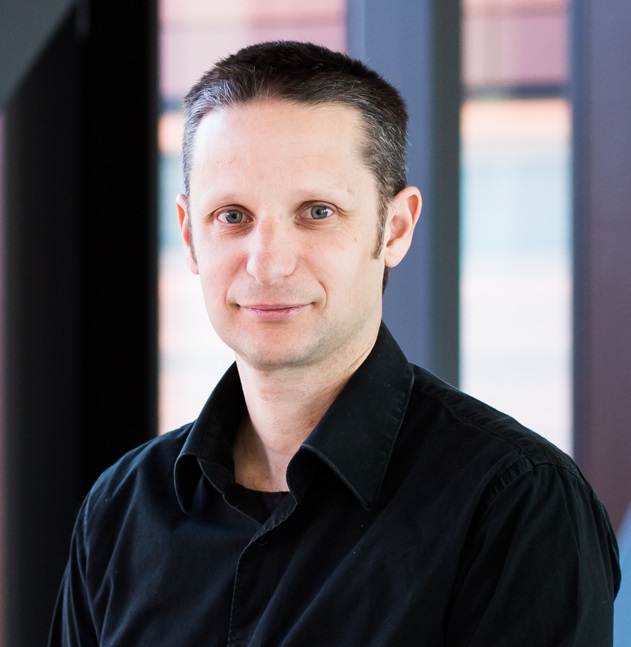
Martin Kerschensteiner is the Chair for Neurosciences and Clinical Neuroimmunology, the Director of the Institute of Clinical Neuroimmunology and the Acting Chair of the Biomedical Center of the LMU Munich. He received his postdoctoral training at the Brain Research Institute of ETH Zurich, at Washington University St. Louis and at Harvard University before returning to Germany where he was promoted to Associate Professor in 2008 and to Full Professor at LMU Munich in 2013.
Professor Ingrid Kockum
Ingrid Kockum is a professor of genetic epidemiology at Karolinska Institutet is the author of more than 300 original research papers and her research is focused on multiple sclerosis (MS). Ingrid is coordinating a horizon Europe project, WISDOM (https://wisdomhorizon.eu/), focusing on developing tools for predicting disease and disease severity. She is also involved in the horizon Europe EBV-MS project (https://www.uib.no/en/ebvms) which is investigating role of EBV in onset and progression of MS and PROPHET (https://prophetproject.eu/) with the goal to develop a personalized prevention roadmap for the future Healthcare in Europe. Ingrid is vice-chair Nordic society for human genetics and precision medicine and Director of Doctoral studies at Department of Clinical Neurosciences at Karolinska Institutet.
Professor Thomas Korn
Professor Korn (b. 1972) is interested in the molecular characterization of fate decisions of T cells in non-lymphoid tissues in particular in the central nervous system in the context of autoimmunity. A specific focus of his research is the formation of CD4+ T helper cell responses.
After graduating from Medical School at the Julius-Maximilians University Würzburg and the Royal London School of Medicine, Professor Korn started a residency program in Neurology and worked in the Neuroimmunology Research groups of Klaus Toyka, Würzburg and later with Stefan Jung, Homburg/Saar. He became board approved Fellow in Neurology in 2005 and then began a postdoctoral training with Vijay Kuchroo at Harvard Medical School. Back in Germany, Professor Korn became senior physician at the Department of Neurology of the Technical University of Munich and started his own research group with a Heisenberg Award from the German Research Council. He is Director of the Institute for Experimental Neuroimmunology and Deputy Clinic Director of the Neurology Clinic at the Klinikum rechts der Isar.
Professor Tanja Kuhlmann
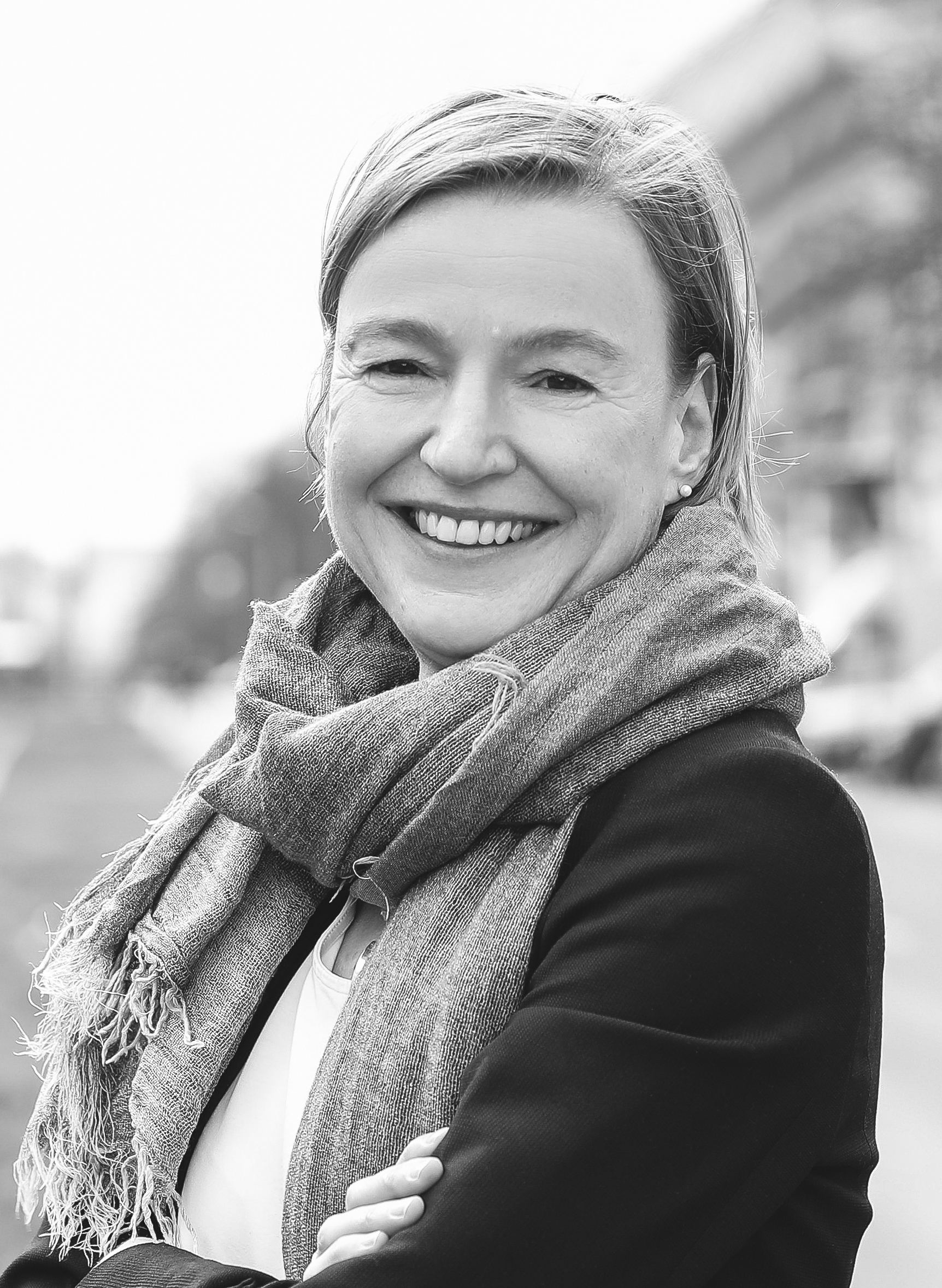
Tanja Kuhlmann studied medicine and specialized in neuropathology. She is full professor at Institute of Neuropathology, University Hospital Münster, Germany and since 2020 part-time adjunct professor, Department of Neurology and Neurosurgery, McGill University. Her key research interests are mechanisms leading to oligodendroglial pathology in CNS diseases and mechanisms driving disease progression in MS. To answer her scientific questions, she uses a wide range of histologic, molecular and cell culture techniques, including spatial transcriptomics and stem cell technologies. She has published many publications in well-known international journals on the topic of MS pathology, especially on oligodendroglial loss and remyelination as well as studies using iPSC-derived oligodendrocytes to understand disease mechanisms in demyelinating diseases.
Professor Roland Liblau
Roland Liblau trained as a clinical neurologist and, in parallel, in the field of neuroimmunology, characterizing autoreactive T cell responses in multiple sclerosis (MS). As a post-doc at Stanford with Prof H. McDevitt, he developed fundamental projects related to autoimmunity and immune tolerance. Back at the Salpêtrière hospital, he led the cerebrospinal fluid analysis laboratory and developed a research laboratory dissecting the pathogenic and regulatory immune mechanisms in MS, using both biological samples from patients and original animal models. His work notably highlighted the key pathogenic contribution of cytotoxic CD8+ T cells across several neuroinflammatory diseases (PNAS 2001, Immunity 2002).
Recruited as a professor in Toulouse, he built a laboratory fully dedicated to neuroimmunology. His work explained the mechanisms whereby some neural autoantigens act as potent immunogens, while others do not (JCI 2003, PNAS 2006, Nature Medicine 2009, J. Immunol. 2014). He further deciphered the contribution of T cells in the initiation (J. Exp. Med. 2007, J. Immunol. 2007, 2008 and 2012, PNAS 2016, Nature Commun. 2019) and chronicity of CNS inflammation, in particular highlighting the contribution of CD8+ and CD4+ tissue-resident memory T cells (Science Transl. Med. 2022, Science Transl. Med. 2025). These data could open new therapeutic avenues (Acta Neuropathol. 2015, JCI Insight. 2019, reviews in Nat Rev Neurol. 2016, Curr Opin Immunol. 2022, Nat Rev Drug Dis 2024). He studied the mechanisms by which immune checkpoint inhibitors promote CNS autoimmunity (Brain 2016, Nat Rev Neurol. 2017), with implications for patients monitoring and care. Using an original mouse model of autoimmunity and a large biobank of blood and CSF cells from patients and age-, sex-, and HLA-matched controls, he is dissecting the cellular and molecular pathways underlying narcolepsy type 1, a rare and enigmatic disorder.
He published 250 peer-reviewed papers listed on PubMed, most related to the study of inflammatory diseases of the central nervous system. His impact on the field is highlighted by invitations to write commentaries or reviews in journals of the highest standing (Nature 2018, Science Adv. 2022, Science 2022, Nat Rev Immunology 2024). Through collaborations and involvement in European consortia, he helped shape neuroimmunology research at the European level. In addition, as president (French Society for Immunology), board member or executive committee member of leading medical and scientific societies (ECTRIMS, ISNI, FOCIS), R. Liblau contributes to knowledge dissemination. In particular, he is deeply involved in teaching and training of young neurologists and basic scientists in the field of neuroimmunology, being co-founder of the European School of Neuroimmunology, and regular organizer or contributor to teaching courses at ECTRIMS, EAN, and AAN.
Professor Christian Münz
Christian Münz has been trained in immunology at the German Cancer Research Institute in Heidelberg, Germany, the University of Tübingen, Germany, and the Rockefeller University in New York, USA. He became Assistant Professor and Head of Laboratory at the Rockefeller University in 2003. In 2008 he was recruited as Associate Professor and Co-Director of the Institute of Experimental Immunology to the University of Zürich, Switzerland, and became Full Professor in 2015. Since 2010 he is also Visiting Professor at the Imperial College in London, UK. In 2006 he received the Burroughs Welcome Fund Investigators in Pathogenesis of Infectious Disease Award for his studies on antigen processing via macroautophagy, and in 2012 the Sobek Award for his studies on the association of Epstein Barr virus (EBV) infection with multiple sclerosis (MS). He is an expert in EBV specific immune control and humanized mice as preclinical models for human oncogenic gamma-herpesvirus infections, and has published more than 300 peer reviewed papers and review articles on these topics.
Professor Jacqueline Palace
Professor Jackie Palace is a consultant neurologist in Oxford and Professor in the Nuffield Department of Clinical Neurosciences, Oxford University. She runs a national service for neuromyelitis optica service (NMO) and congenital myasthenic syndromes (CMS). Her clinical and research interests cover NMOSD, MOGAD, MS, and myasthenia gravis as well CMS and include clinical treatment trials, immunological studies, pathology, biomarkers, genetics , and imaging studies. She has been a UK lead for the National Risk Sharing Scheme which assessed the long-term effectiveness for disease modifying agents in multiple sclerosis, is a board member of the European Charcot Foundation, a member of the International Clinical Consortium of the Guthy Jackson Foundation Charity, on the Medical Advisory Board of the Sumaira Foundation Charity and the MOG project, on the Editorial Advisory Board for The Lancet Neurology, Associate Editor in Frontiers in Neurology (Multiple Sclerosis and Neuroimmunology) and is a member of MAGNIMS. In May 2025 awarded ABN Medal.
Dr Anneli Peters

Dr Anneli Peters studied Biochemistry in Bochum, Germany, and then studied for a PhD in the lab of Prof. Vijay Kuchroo at Harvard Medical School in Boston, USA. Dr Peters focused on the role of different T helper cell subsets, especially Th17 cells, in the induction of inflammatory processes in the CNS during EAE, the animal model of Multiple Sclerosis (MS). During her PostDoc at Harvard she became interested in how T:B cell collaboration may drive pathogenesis of disease. To investigate how B cells might support development of disease in the absence of artificially induced T cell priming, Dr Peters joined the laboratory of Prof. Hartmut Wekerle at the Max Planck Institute of Neurobiology, Munich, Germany. After being awarded with the Junior scientist award of the Sobek-Foundation for MS Research and an Emmy Noether grant, Dr Peters started their own lab at the Institute of Clinical Neuroimmunology, LMU Munich, to investigate the role of T:B cell interactions in CNS autoimmunity.
Professor Marco Prinz
Marco Prinz is Professor of Neuropathology and Chair of the Institute of Neuropathology at the University of Freiburg, Germany. Dr. Prinz obtained his MD at the Charité, Humboldt-University Berlin in 1997. During his MD thesis he investigated the pathology of cortical interneurons in humans at the Institute of Neuroanatomy at the Charité Berlin. He did a postdoc at the Max-Delbrück-Centre (MDC) of Molecular Medicine dedicated to the function of glial cells in the central nervous system (CNS), especially microglia. He performed his residency in Neuropathology at the University Hospital Zurich, Switzerland and studied there the role of the peripheral and CNS-restricted immune system for the pathogenesis of neurodegenerative diseases such as prion diseases. In 2003 he became a group leader at the University Hospital in Göttingen, Germany and in 2007 lecturer of Neuropathology there.
He was recruited to the University of Freiburg, Germany, in 2008 and was promoted to the rank of Full Professor and Chair of the Institute of Neuropathology. Dr. Prinz laboratory studies the mechanisms that regulate the development and function of the mononuclear phagocyte lineage in the central nervous system including microglia, perivascular and meningeal macrophages. His laboratory has made seminal discoveries in CNS macrophage biology revealing their embryonic origin and their local maintenance in situ. Dr. Prinz belongs to several German Research Foundation (DFG)- and EU-funded scientific consortia to decipher the transcriptional regulation of the macrophage lineage in the CNS. Currently, his research group aims to understand myeloid cell biology in the CNS during health and disease and studies the impact of the immune system on the pathogenesis of neurological disorders such as neurodegenerative diseases, ultimately aimed at recognizing novel therapeutic strategies and targets to treat these central nervous system diseases. Dr. Prinz has authored more than 170 primary papers and reviews in high profile journals and has obtained extensive DFG and EU funding for his studies on macrophage biology in the CNS in mice and humans.
Professor Stephen Sawcer
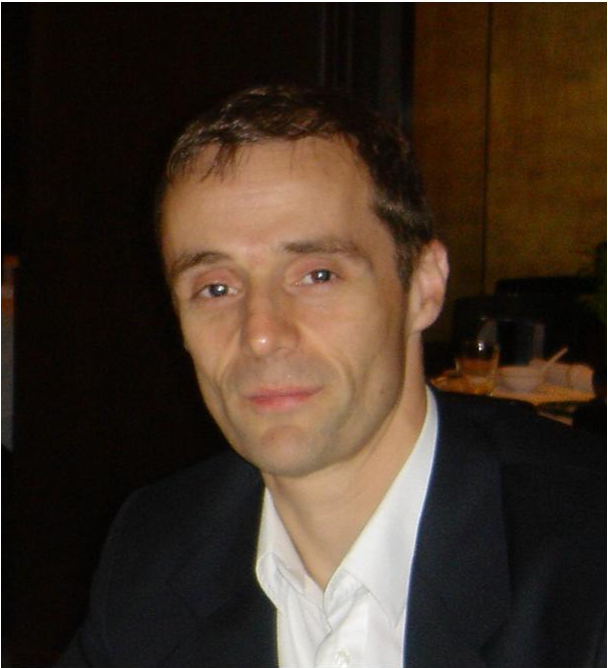
Stephen Sawcer is Professor of Neurological Genetics at the University of Cambridge and an Honorary Consultant Neurologist at Addenbrooke's Hospital. He completed a BSc in Physics at Liverpool University before going to medical school (MB ChB) at Birmingham University. He became MRCP in 1991 and did his PhD at the University of Cambridge under the supervision of Professor Alastair Compston and Professor Peter Goodfellow. Professor Sawcer has worked on the genetics of multiple sclerosis for more than 30 years with a main focus on genomewide approaches. He is a strategic group member of the International Multiple Sclerosis Genetics Consortium (IMSGC).
Professor John Trowsdale
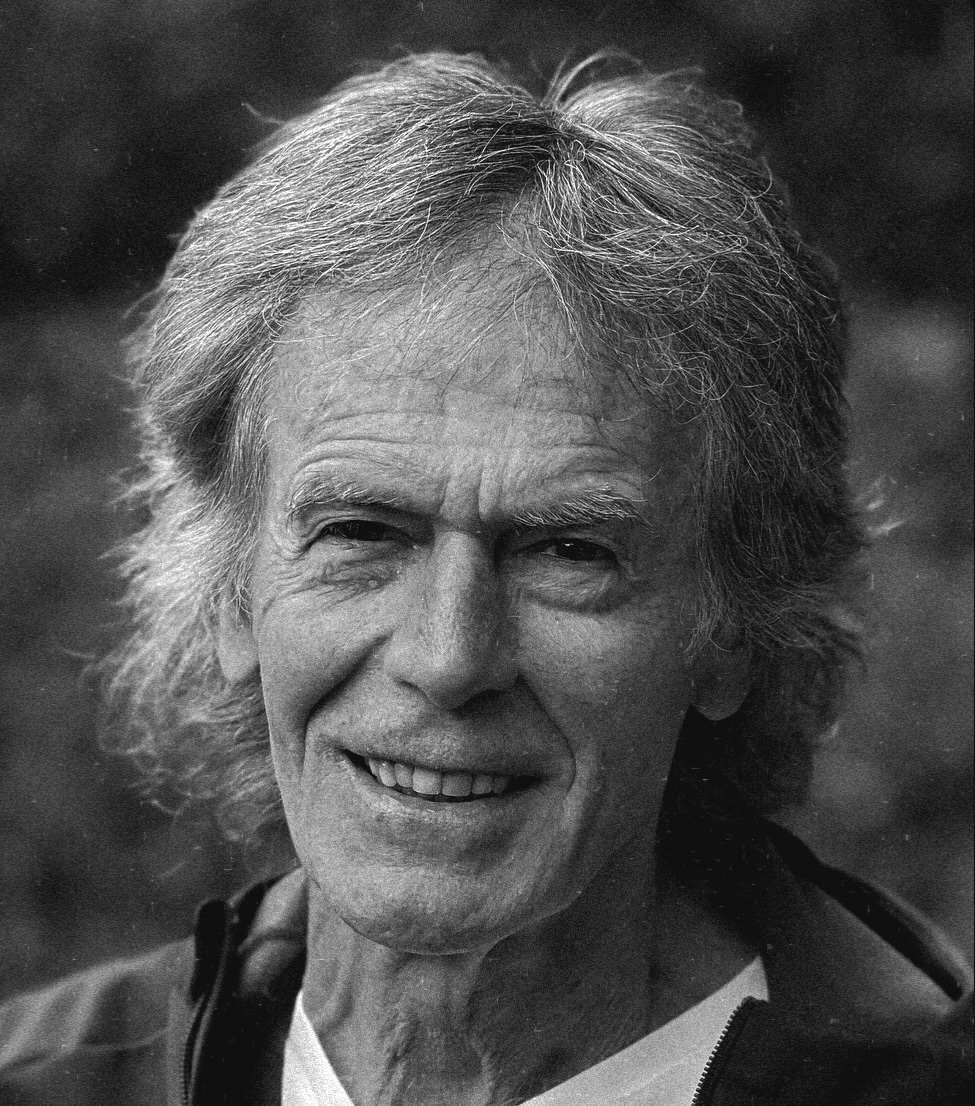
John Trowsdale is Emeritus Professor in the Department of Pathology, Cambridge UK. After postdoctoral work on bacterial genetics in Paris and California he joined Sir Walter Bodmer’s laboratory in Oxford, which then moved to Cancer Research UK (formerly ICRF) in London. In the early 1980’s Trowsdale was one of the first to clone HLA genes and to complete sequencing of the entire MHC region, in collaboration with Stephan Beck at the Sanger Centre. Trowsdale identified key components of antigen processing for HLA, such as TAP transporters and the immunoproteasome. More recently the group contributed to understanding the family of polymorphic receptors for HLA such as KIR and LILR. He is a recipient of the ASHI Rose Payne distinguished scientist award and the EFI Ceppellini Award. He is a Fellow of the Academy of Medical Sciences. He was a Fellow of Trinity Hall Cambridge from 2009 to 2017. He is the author of an accessible immunology book: What the Body Knows, published by Yale.
INVITED SESSION CHAIRS
Liam Messin
Deputy Editor | Nature Medicine

Liam received his undergraduate degree in biochemistry from the University of Warwick. He then completed his Masters and PhD in interdisciplinary biomedical research at Warwick Medical School. Before starting his editorial career Liam worked for the Naked Scientists radio show, based at the University of Cambridge. He then worked as Senior Editor for eBioMedicine and The Lancet Infectious Diseases before being made Deputy Editor for The Lancet Global Health in 2022. He joined Nature Medicine as Deputy Editor in 2024 where he handles papers related to non-communicable diseases including cardiovascular disease, diabetes, and neurological disorders
Cheri Sirois
Senior Scientific Officer | Cell Press
Professor Cheri Sirois, PhD did doctoral work in infectious diseases and innate immunity at University of Massachusetts Chan Medical School, postdoctoral work at Pfizer, and spent several years as a professor of immunology and microbiology in Ecuador and in the United States before joining Cell Press in 2018. Since 2021, Cheri has been a scientific editor at Cell, where she enjoys reading the broad range of science that comes to the journal, as well as coordinating much of the journal’s exciting immunology and infectious disease content. She is based in Boston, United States.
Angela Vincent
Emeritus Professor, University of Oxford
Angela Vincent is Emeritus Professor of Neuroimmunology at the University of Oxford. She was an Honorary Consultant in Immunology and led the Oxford Neuroimmunology Service for 25 years until 2016. Research interests include clinical and serological studies on patients with neuromuscular junction disorders (myasthenia, MuSK-myasthenia, neuromyotonia) and acquired disorders of the CNS associated with antibodies to LGI1 and CASPR2, AQP4, MOG, NMDA and glycine receptors. She pioneered the study of maternal antibodies to fetal-specific proteins that can be strongly associated with neurodevelopmental disorders.
Giovanna Borsellino
Professor of Neuroimmunology, University of Rome
Giovanna Borsellino is a neuroimmunologist at the Santa Lucia Foundation (Rome). Her lab investigates innate–adaptive crosstalk in multiple sclerosis, integrating high-parameter cytometry and single-cell genomics. She directs high-parameter flow cytometry programs and leads multi-site collaborations translating immune signatures into clinical impact. Outside the lab, she mentors early-career scientists and develops advanced training in cytometry and immunology.
Tomas Olsson
Professor of Neurology, Karolinska Institute
Prof. Tomas Olsson received his MD in 1977 and completed his PhD in Medical Sciences in 1980. He obtained Specialist exam in Clinical Neurology in 1984. He was appointed as Professor of Molecular Medicine 1995, and holds the post of Professor of Neurology at Karolinska Institutet, Sweden since 2008.
Prof. Olsson has been a member of the Nobel Assembly, and was its Chairman 2017. He was Chairman for the Swedish expert committee for Multiple Sclerosis (1997-2002) and is now a member and co-founder of the Swedish Multiple Sclerosis Society as well as a member of multiple international MS societies. Prof. Olsson is a board member and co-founder of the European school of Neuroimmunology (ESNI), member of the international scientific board of the international congress of Neuroimmunology (ISNI), former executive board member of the international scientific board of the European committee for the treatment of MS. (ECTRIMS), and presently its honorary member for life time achievements in MS. Member of the International Multiple Sclerosis Genetics Consortium (IMSGC). Prof. Olssons’s research interests focus on neuroinflammation with focus on multiple sclerosis (MS), and its relation to genetics, immunology and life style/environmental factors. In particular he was among the first to demonstrate autoreactive T cells in MS. He has been vital for collection of very large MS case-control materials, needed for the definition of MS risk genes and their interaction with lifestyle factors such as EBV infection, smoking and obesity. He has (co)authored more than 700 papers published in peer reviewed journals, many of them in high impact journals.
Organisers
Dr Kate Attfield
Professor Lars Fugger


